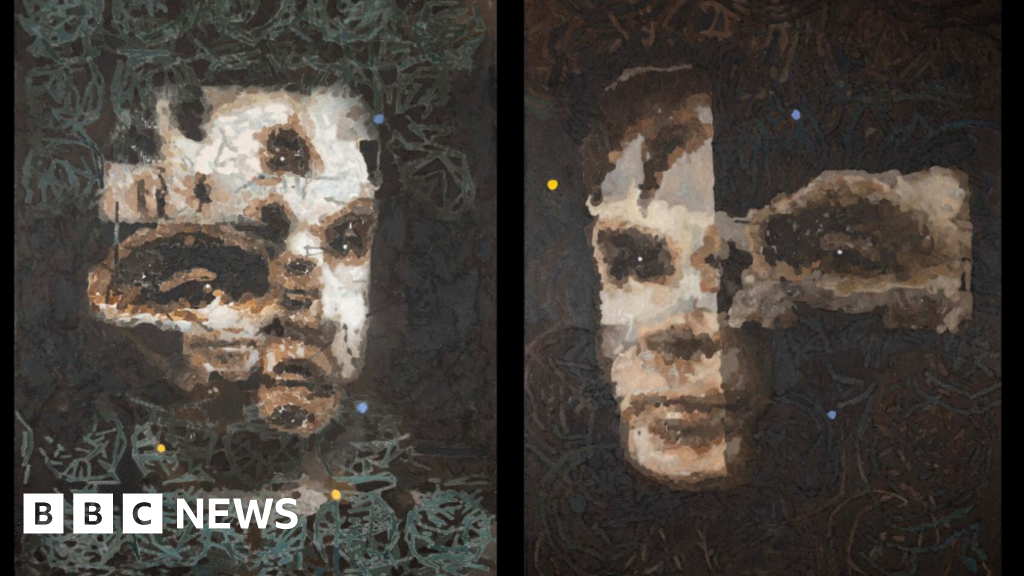The slop: https://ichef.bbci.co.uk/news/1024/cpsprodpb/a50d/live/57dcda40-9d54-11ef-9850-61b70bbc107f.png.webp
spoiler
A painting by an AI robot of the eminent World War Two codebreaker Alan Turing has sold for $1,084,800 (£836,667) at auction.
Sotheby's said there were 27 bids for the digital art sale of "A.I. God", which had been originally estimated to sell for between $120,000 (£90,252) and $180,000 (£139,000).
Mathematician Turing was a pioneer of computer science and known as the father of artificial intelligence (AI).
The auction house said the historic sale "launches a new frontier in the global art market, establishing the auction benchmark for an artwork by a humanoid robot".
It added the work by Ai-Da Robot is "the first humanoid robot artist to have an artwork sold at auction."
The work is a large scale original portrait of Turing, who studied at King's College, Cambridge.
The scientist played a crucial role in the Allies' victory over Nazi Germany in World War Two by helping to crack codes and deciphering the infamous Enigma machine at Bletchley Park.
After the war he produced a detailed design for a digital computer in the modern sense.
Sotheby's said the online sale, which ended at 19:00 GMT on Thursday, was bought by an undisclosed buyer for a price "far outstripping the artwork’s estimate price".
The auction house said the sale price for the first artwork by a humanoid robot artist "marks a moment in the history of modern and contemporary art and reflects the growing intersection between A.I. technology and the global art market".
Ai-Da Robot, which uses an advanced AI language model to speak, said: "The key value of my work is its capacity to serve as a catalyst for dialogue about emerging technologies."
The work "invites viewers to reflect on the god-like nature of AI and computing while considering the ethical and societal implications of these advancements", the robot said.
"Alan Turing recognised this potential, and stares at us, as we race towards this future." Ai-Da Robot Studios Ai-Da Robot, an AI robot, standing in front of several works of art. She is having her photo taken by two people standing in front of her. You can see a camera and a light. A man is walking away from and another man is on a mezzanine floor. The floor is green.
Aidan Meller, director of the Ai-Da Robot Studios, said: "This auction is an important moment for the visual arts, where Ai-Da’s artwork brings focus on artworld and societal changes, as we grapple with the rising age of AI.
"The artwork 'AI God' raises questions about agency, as AI gains more power."



Even the tulip mania had some kind of intrinsic value. The main "variety" that drove the speculative bubble was a normal tulip randomly infected with a virus in an era before microbiology. We had no way of knowing how to reproduce those tulips and the bust happened when traders sold more futures than could be grown. There's actual scarcity to that and I'd uniquely value it in the same way I would a plant with a variegation mutation. The speculative value is nonsensical but it's something I can't replicate.
Apparently it was also just something people did for fun during the off season. The only real sources we have about tulip mania is pamphlets written by christian prudes decades later